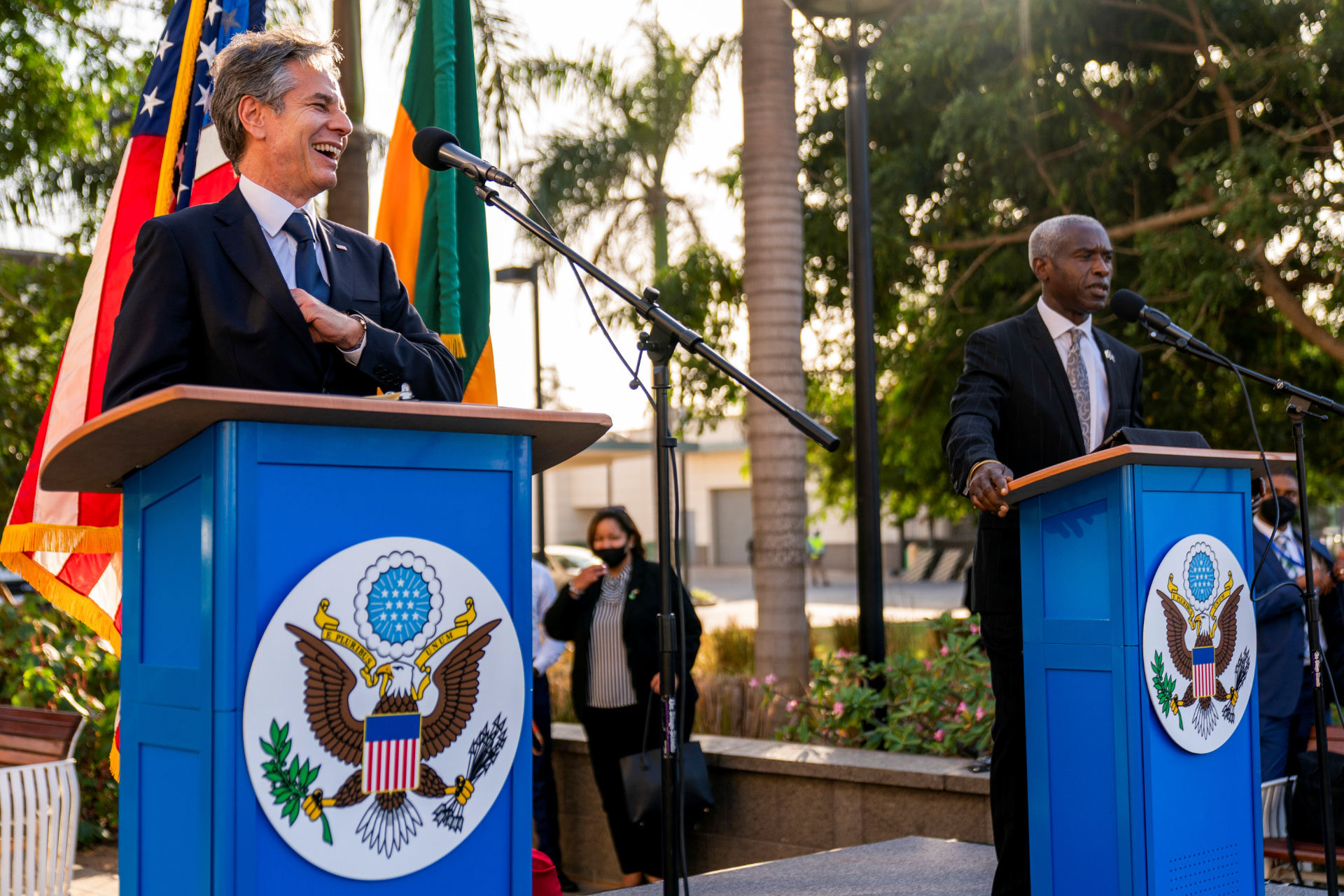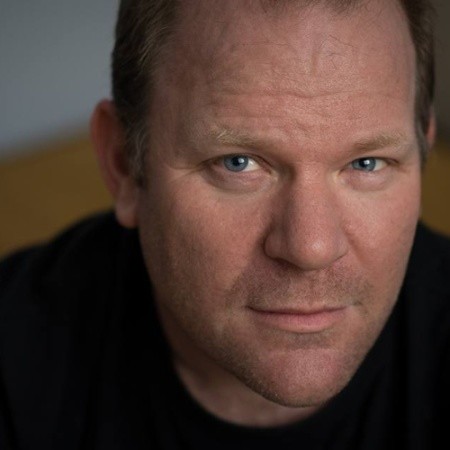Blinken downplays China competition on Africa tour
“We don’t want to make you choose” between the U.S. and China, Secretary of State Antony Blinken said on a three-nation tour in Africa, playing down the zero-sum messaging of his predecessors. But with mixed signals from elsewhere in the U.S. government, will African countries take up Blinken’s offer of deeper partnership?

U.S. Secretary of State Antony Blinken returned home on Saturday after wrapping up a three-nation, five-day tour of Africa with stops in Kenya, Nigeria, and Senegal.
Throughout the trip, Blinken sought to reassure his African hosts, and stakeholders across the continent, that the United States would do more to elevate Africa in its overall foreign policy. At the same time, he also went out of his way to downplay perceived competition with China.
China loomed over the secretary’s visit as it has for all of his predecessors dating back more than a decade to when Hillary Clinton was in that office. However, different secretaries of state dealt with the issue in different ways. The previous secretary, Mike Pompeo, despite being a famed China hawk, made a visit to Africa in February 2020 during which he seemed dedicated to avoiding mentions of the C-word. Blinken took a more head-on approach.
“Our Africa policy is about Africa, not about China,” Blinken told BBC journalist Anne Soy in an interview, a theme he repeated at almost every stop along his tour.
In sharp contrast to the prevailing narrative in Washington and among his colleagues at senior levels of the U.S. government, Blinken even faintly praised some aspects of Chinese engagement in Africa: “If there’s investment or trade coming into Africa or with Africa from anywhere else, including China, in principle that’s a great thing,” he told reporters at a press conference in Abuja with Nigerian Foreign Minister Geoffrey Onyeama.
Later, during a keynote address at the Economic Community of West African States (ECOWAS) headquarters, also in Abuja (built, incidentally, by the Chinese) Blinken studiously avoided mentioning China, but he made a number of indirect references that reinforced this softer, more conciliatory tone. “The United States doesn’t want to limit your partnerships with other countries,” he said. “We want to make your partnerships with us even stronger. We don’t want to make you choose.”
Blinken’s reassurances that Washington will not require African countries to “choose sides” in the worsening Sino-U.S. dispute do, in fact, echo statements that he’s made in places like Southeast Asia, nonetheless, the secretary’s more accommodating rhetoric toward Chinese engagement in Africa is somewhat unusual.
The State Department’s own assessment of the “China Challenge,” as detailed last fall by Blinken’s Policy Planning Staff, characterizes Beijing as an aspiring hegemon that seeks to dominate a new international order through the widespread use of coercive diplomacy. How that assessment aligns with the more accommodating language we heard last week remains unclear.
Three challenges to Blinken’s new approach to China in Africa
- MIXED SIGNALS FROM THE U.S. GOVERNMENT: Blinken’s we want what’s best for you approach in Africa stands in sharp contrast to the policies and rhetoric about China expressed by every other agency within the U.S. government. The Pentagon, U.S. International Development Finance Corporation (DFC), National Security Council, U.S. Trade Representative, and other departments have all staked out highly critical positions on China’s engagement in Global South countries, so it shouldn’t be surprising that African stakeholders are wondering whether the secretary’s new approach has the support of the rest of the bureaucracy.
- LACK OF BROADER POLITICAL SUPPORT: China is effectively a four-letter word in Washington, D.C., today and there is little support for the kind of nuanced approach that the secretary appears to be undertaking. Confronting China around the world is the rare bipartisan issue that most Americans agree on and it’s quite likely that the secretary could face intense pressure for his more accommodating stance the next time he is called to testify before Congress. Senators like Ted Cruz, Marco Rubio, and Tom Cotton are all powerful critics of the administration’s handling of China policy and will likely not look favorably on Blinken’s less confrontational tone in Africa. Rubio’s holding up of the confirmation of Nicholas Burns, President Biden’s nominee for ambassador to Beijing, shows that an administration perceived as insufficiently confrontational with China could face some challenges at home.
- ALL THINGS TO ALL PEOPLE: Secretary Blinken’s trip highlighted how the United States still sees its role in Africa as all encompassing. He addressed a huge range of issues on everything from peace and security in the Horn of Africa to female entrepreneurship, religious freedom, human rights, governance, and youth empowerment. But the challenge for the U.S. is that it no longer has the political influence to force change on all of these issues in Africa. China, by contrast, tends to focus its engagement on a much narrower set of issues largely anchored in trade, investment, and economics. In comparison, the U.S. is often viewed as less effective and less focused on achieving tangible outcomes with its Africa policy.
This article was republished, with permission, from the China-Africa Project.






